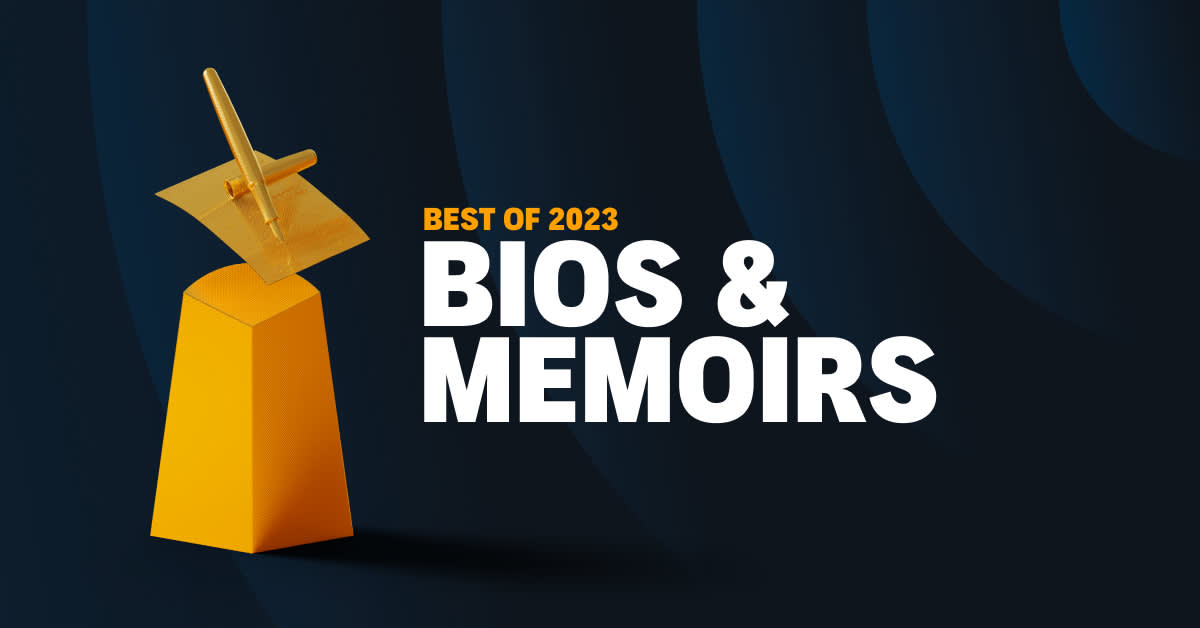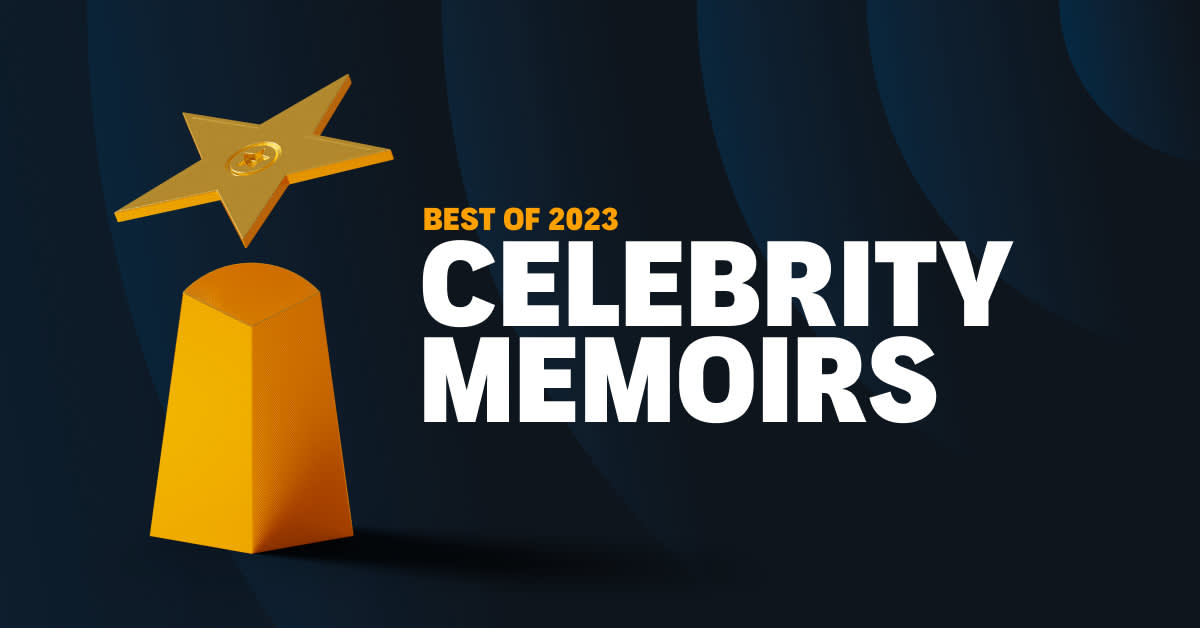With the arrival of each new year comes a fresh array of bios and memoirs, each holding a uniquely intimate take on what it means to be human. These 18 listens represent just a few of the very best released in 2023—living, breathing records of all the complexities of identity, culture, family, and coming of age. From lyrical reflections on trauma and healing to examinations of life with chronic illness to introspective studies of art and literature, these vivid accounts lay bare the life of one person while extending a universality to anyone who presses play.
Save this list to your Library Collections now.
This landmark biography deserves its instant status as essential listening. If the culture has crystallized MLK into monuments and sound bites, Jonathan Eig’s intimate portrait reveals his full humanity, a thrilling feat that only enhances the civil rights leader’s legacy. Meet King, the preacher’s son, natty dresser, and ladies’ man. The FBI target who foresaw his own martyrdom. And the incomparable orator who drew from poetry, sermons, and scholarship to rouse the largest movement of Black Americans the world had ever seen. Decorated narrator Dion Graham channels King to perfection in an unforgettable performance. —Kat J.
The Pulitzer Prize-winning author of The Sympathizer expands his investigation of the double consciousness of the model minority in this blistering, uncoventional memoir. While it's common to present an inspiring struggle from hardship to success, Viet Thanh Nguyen is skeptical of any narrative that easily romanticizes individual uplift. Beautifully read by the author, whose trademark sardonic wit shines through as he shares stories of refugeehood, colonization, and fatherhood, this meditation on memory and forgetting also details the sacrifices of his parents, born into rural poverty in Vietnam. —Jerry P.
Meg Kissinger’s acclaimed reporting on systemic failures to address the mental health crisis sought to shatter the stigma pervading conversations on illness and care. In her memoir, she furthers that dialogue with a tremendous turn inward. With an investigative journalist’s keen eye, Kissinger examines her own family’s history with mental illness, which afflicted both of her parents and several of her seven siblings, two of whom would die by suicide. Shimmering with hope and pulsating with heartache, this exceptional listen is as much an exquisitely personal work as it is a fervent call to action. Kissinger’s narration, like her writing, is as incisive as it is boundlessly compassionate. —Alanna M.
Christian Cooper soars above and beyond his viral encounter in New York City's Central Park in this heartfelt—and strikingly humorous—memoir that offers a healing reminder that no story ever begins or ends in a single moment. Infused with insights on queer sexuality and nerd culture, and featuring a natural abundance of birdcalls, this dynamic listen is made all the more memorable by Cooper’s charming narration. —Haley H.
As soon as I registered that the title of Lamya H.’s memoir was a nod to the iconic novel Stone Butch Blues, I was sold. But it wasn’t until I finished the listen that I felt a deep appreciation for Lamya’s unique journey coming into her own as a queer and devout Muslim immigrant. Both breathtakingly intimate and utterly hopeful, this story refuses to fit neatly into any box. Through the clarity of her deft self-examination, Lamya teaches us that critical thinking is vital and that there is more than one way to be queer—just as there is more than one way to be Muslim. —Madeline A.
As a magazine writer and editor, John Hendrickson is an expert at using and manipulating words, but as a lifelong stutterer, the spoken word often fails him. In his poignant memoir, he details the anguish and embarrassment, and George Newbern narrates with sensitivity, navigating tricky moments without crossing the line into caricature. A lesson for everyone comes in the chapter where Hendrickson details “The Look”—“It’s primal, this reaction: another body literally retreating from you, the problem.” Stuttering, like any challenge, is ultimately not about casting blame or feeling shame. As the author clearly explains, with empathy, it's about being transparent and finding understanding. —J.P.
Millions of Americans, including National Book Award-winning scholar Imani Perry, face each day through the lens of chronic illness. In her absolute stunner of a memoir, Perry details her experience living with systemic lupus and the agonies of navigating a culture often incompatible with invisible disabilities. Her brilliant grasp of language coupled with her gentle, measured performance lay bare the frustrating reality of sickness. “In living with disease,” Perry writes, “we bear witness to something important about the human condition, something that is worth the world’s attention.” Now, it’s up to us to listen. —A.M.
Not even the most pedigreed art historian has cultivated such an awe-inspiring perspective on the Metropolitan Museum of Art as this jewel of a memoir by a former New Yorker staffer-turned-museum guard. After the death of his brother, Patrick Bringley traded the literary job of a lifetime for the Met’s hallowed halls, and the result is this beautifully narrated and profound meditation on art, grief, and solace. So while he’s no longer a New Yorker writer, Bringley is a New York writer of the highest order with this paean to the city’s beloved institution. —K.J.
In this exceptionally brave and honest memoir, author Prachi Gupta digs into the realities of growing up as a first-generation Indian American child of high-achieving immigrant parents. By all outward accounts, Gupta’s family seemed deceptively perfect. In reality, her home was a hotbed of unresolved grief and generational trauma, compounded by a controlling father who never wavered from his belief that the family should act as a model minority. As Gupta says in her powerful self-narrated memoir, “Now I see that my job was to allow those who come next the freedom to be ordinary. They called us exceptional, and it destroyed us.” —M.A.
Slow-rolling scandals have rocked the Duggar family since they first appeared on reality TV. But it's Jill’s account of her childhood and her more recent “deconstruction” (a term for the process of questioning one’s evangelical upbringing) that truly shed new light on the situation. At its heart, this is a story about agency, and the right to reclaim it if it’s been denied. (Editor's note: We chose not to categorize this as Celebrity Memoir because a central concern of Jill's story is how much choice she had in her status as a notable person.) Jill's narration is steeped in honesty and tinged with regret, but there is also so much well-earned hope and pride for the life she has created. —Emily C.
To call Sink “honest” or “vulnerable” feels like an understatement—it is a narrative that never once flinches. And though it may not be the easiest listen, it is one that demonstrates just how truly human a memoir can be. From a third-person perspective, Joseph Earl Thomas bares his adolescent self, detailing both the cruelties of his upbringing and the escapism that geek culture provided. As he unspools his story, in a voice strikingly soft, Thomas crafts a wholly unique tale, a standout as unvarnished as it is profoundly empathetic. —A.M.
One of the most-decorated American distance runners of all time, Lauren Fleshman is arrestingly talented by anyone’s athletic standards. Unfortunately, that’s not always what she was told. Full of fresh insights, this timely listen goes beyond the story of Fleshman’s life as she made it pro against all the odds. Good for a Girl is a well-researched call-to-action that mixes the author's own testimony with hard facts and social commentary—all pointing toward a broken system that's failing young women. As she narrates her own story, Fleshman’s passion is palpable, leaving listeners informed and inspired. —M.A.
Listening to Jane Wong's gentle voice as she jumps between events and memories, rearranging anecdotes of her life growing up along the Jersey Shore as a Chinese American, one soon feels soothed by the poetic descriptions that shape her recollections. While the trauma of having an absentee father stings, it's her stories of her supportive mother that bring the most joy—possibly causing many others to wish, as the author suggests, they could have a Wongmom.com of their own to dispense much-needed assurances and humorous advice. —J.P.
With the sense of isolation so many encounter after a disability diagnosis, narratives on navigating the labyrinthine health care landscape and rebuilding a life after facing the unfathomable are essential. John Cotter’s staggering testament exemplifies such significant storytelling while offering heart and soul all its own. Both a gutting, intimate reflection on the reality of life with a chronic illness (in Cotter’s case, what’s diagnosed as Ménière’s disease) and an exceptional account of the human capacity for resilience, Cotter’s melodious author-narrated memoir is as much about gradually losing one sensorial experience as it is finding a better understanding of the self. —A.M.
Try not to be too envious of astrobiologist Aomawa Shields. Her idiosyncratic journey, which begins with her love of astronomy as a preteen, takes a detour to following her passion and pursuit of acting and the arts, and eventually returns to science (she's currently a tenured professor of astronomy and physics at UC Irvine) is as stunning to behold as peering into the cosmos. But Shields's narration of her inspiring story is immediate and often poetic, whether she's unpacking complicated concepts about stars and planets or her anxieties about not feeling “Black enough” in certain settings. —J.P.
Narrated by the courageous author herself, this memoir of a fierce reporter who was kicked out of her rigidly evangelical and violent home at the age of 16 is a meditation on resilience. Rachel Louise Snyder doesn’t paint an easy-to-digest Cinderella story of rags to riches, nor does she claim that suffering makes a person stronger. What she does is powerfully show how through remaining open to possibilities, she managed to carve out a vibrant life of her own—finding romantic love, giving birth to her daughter, and surrounding herself with a chosen family all while working as an international journalist. —M.A.
Put simply, Safiya Sinclair’s stunning memoir demands to be heard. A celebrated poet, Sinclair wields a delicate, evocative writing style rich with lush detail and fluidity, and her narration mirrors that flow exquisitely. In a nearly musical cadence, Sinclair recounts a turbulent upbringing in a patriarchal Rastafari household that denied her independence and self-expression, instead demanding unquestioned obedience. As she comes of age and courageously comes into her own through the outlets of education and art, Sinclair finds herself on the long road to healing, balancing reflection with redemption. The result is nothing short of superb. —A.M.
When Nicole Avant learned her mom had been shot during the night, she did something her mother taught her—set the tone for the day by doing the right thing. In this moment, the right thing was to care, by feeding the dogs before she went to the hospital where her mother would later die. This touching, inspiring memoir is about growing up in an extraordinary household with her brother and their parents, entertainment mogul Clarence and big-hearted mother Jacqueline. Nicole pays homage to them as their lessons live on in her heart and soul—every single day. —Yvonne D.






















